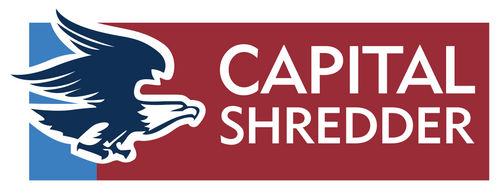In today's modern society, it is almost an anomaly that everyone hasn't had their identity misplaced legally in some way. With the proliferation of junk mail, copies of online documents sent to a physical address, and large companies selling consumer data to third parties, a lot of your personal data is out there whether you like it or not. This places a high degree of responsibility on the consumer to eliminate their own paper trail and hopefully deter would-be thieves and identity robbers.
If you think that it can't happen to you, think again. Almost 49% of consumers think that their security habits and lifestyle make them vulnerable to identity theft or other information frauds. So why take the risk? If you learn what documents to shred and how to properly operate a secure paper shredder, you can set your mind at ease that you are at least trying to eliminate personal data leaks from your paper documents.
What You Can Shred & What You Can't
If you've never used a secure shredder (preferably one that does level 6 shredding for ultimate security), you may not be aware of what things you can shred. Obviously, it must be paper or paper equivalents. Unfortunately, you won't be able to put your license plate down the hatch (but you can recycle it). A good industrial shredder machine will usually allow you to shred multiple documents at a time, as well as allow you to shred things like passports, marriage licenses, and other official documents.
When thinking of things to shred, there are multiple approaches to take. You could take a nuanced approach, in which you only shred the most important things (not public information or what someone could find out in a phone book), or the everything approach (shred it all). Before deciding which approach to take, run a couple of simple questions by yourself. These will help you determine what should be obliterated vs. recycled and forgotten about.
First of all, think deeply about whether the document(s) in question contain enough identifying information to be destroyed rather than recycled. Recycling documents will destroy them eventually, but might allow prying eyes at the recycling plant or the journey to the waste dump to glean information about you for nefarious purposes. Lots of public information can be gleaned about you just from your name and address alone, so this may be worth shredding and destroying.
Second, ask yourself if the source of information would give more information to a criminal. So if you've received a paper notice from the library, try and find out whether the library would even have enough information to provide a criminal with a path to get started. The answer is probably no. However, this changes entirely with something like a bank statement, which is probably the best candidate for an industrial shredder machine.
Third, always remember that expired personal documents (driver's licenses, passports, ID cards) only have nostalgic value in museums where they're protected. There is absolutely no sense in keeping expired documents like this around because they pose too much of a risk to would-be criminals. Shred them or burn them immediately once you have a replacement, no questions asked. Then you can finally have some peace of mind.
Do What You Can, Then Live Your Life
Having a high capacity paper shredder to eliminate data leaks from your personal documents will go a long way towards peace of mind but at the end of the day, it's just one tool in your arsenal. An industrial shredder machine combined with good security practices, such as trying to get secure e-document delivery and eliminate non-important paper copies, can go a long way toward you having to shred numerous documents.
But at the end of the day, we still live in a digital world that places an importance on paper. Wills, trusts, contracts, and more still thrive on paper and are upheld as such in many courts of law. When it comes time to get rid of these documents securely, nothing beats an industrial shredder machine. If you've put your documents through their blades, then you can rest easy knowing your personal information is safe.


